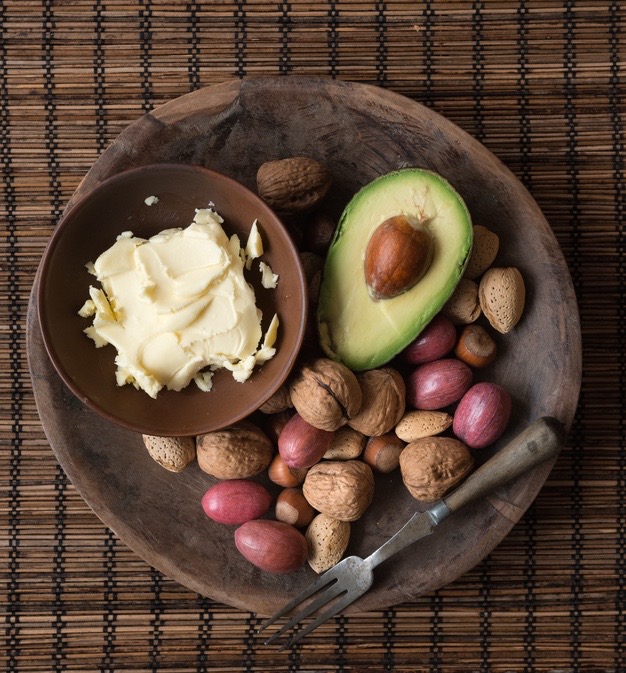
If you read anything diet-related in the 80s, you’ve likely been brainwashed into thinking fat is bad. I was an impressionable kid during this era of cream cheese-less bagels, “fat free” pretzels (as if pretzels contained fat to begin with), and SnackWell’s, and it’s taken years for me to overcome my instinct to grab the fat-free cream cheese.
The truth is you need fat in order to absorb certain vitamins in your food and to keep your hormones balanced and functioning. And don’t forget, your brain is made up of 60% fat. In fact, there are doctors who recommend supplementing with fats like coconut oil for treating Alzheimer’s disease. (The research is lacking, but I’m certainly intrigued.)
One of the biggest reasons to avoid “fat free” and “low fat” is that food companies often load these items with sugar and chemicals, because they’d taste like actual cardboard if they simply took out the fat. Yum.
Eating something that’s fat free is not always bad for you, and there’s really no scientific way to show this, but food should be eaten in it’s most whole form (i.e. with the fat). Afterall, we’ve evolved genetically to digest things as they are in nature, not after being stripped, pulverized, and chemicalized.
That’s the evolutionary perspective… From a practical perspective, fat has flavor and satisfies you. If you eat fat free, it leaves you missing something and makes you more likely to seek out other ways to fill in that void – like eating more cheese or more of something else — ultimately more calories.
Choosing to eat fat free versions of food could also mess with you psychologically, because you feel like you’re “being good” and “saving calories” so you may (subconsciously) indulge more later.
This does not mean you should make a habit of eating greasy fries or adding butter to your coffee (so weird). Fat — no matter the type — clocks in at 9 calories per gram compared to just 4 calories for protein and carbs, so munch mindfully.
Trans fats from partially hydrogenated oils should be avoided at all costs. They cause heart disease, period. Read the label. If it lists any more than 0 grams of trans fat, or if partially hydrogenated oil appears on the ingredient panel, skip it entirely.
Avocados, nuts, olive oil, fatty fish, eggs, dark chocolate and dairy are all part of a healthy diet. If you enjoy a slice of cheese, a glass of milk or a yogurt every now and then, whole (or at least 2%) is — in my opinion — the better choice.

One Comment